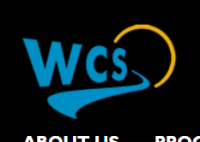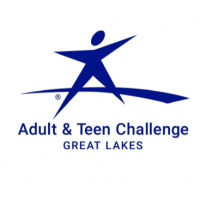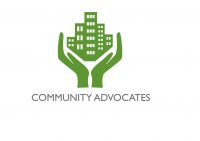Family Services - Alcohol and Drug Counseling
Drug Rehab Center in Waukesha, Wisconsin
- Mental Health
- Dual Diagnosis
Family Services - Alcohol and Drug Counseling provides comprehensive, tailored addiction treatment and dual diagnosis care, plus evidence-based psychotherapy, medication management, holistic therapies, family support services and more - all of which are accepted by most private health insurance.
About This Wisconsin Facility
Family Services - Alcohol and Drug Counseling is a Dual Diagnosis and Mental Health Treatment Facility located in Waukesha, Wisconsin. Their primary focus is to assist individuals who are struggling with substance abuse and addiction in achieving sobriety. They offer outpatient services, allowing clients to receive treatment while still maintaining their daily routines. Additionally, Family Services - Alcohol and Drug Counseling accepts private health insurance, making their services more accessible to a wider range of individuals seeking help.
Family Services - Alcohol and Drug Counseling provides a range of services and treatment methods for those dealing with addiction and substance abuse. Their facility specializes in dual diagnosis, addressing both mental health and substance abuse issues simultaneously. This comprehensive approach ensures that individuals receive the necessary support to address the underlying causes of their addiction. Their outpatient programs provide flexible treatment options that fit into clients' existing schedules, allowing them to maintain their obligations while working towards sobriety. Through therapy sessions and counseling, individuals are provided with tools and strategies to cope with triggers and develop healthier habits, ultimately aiding in their recovery process.
Genders
Ages
Modality
Additional
Conditions and Issues Treated
When addiction and psychiatric issues co-occur, the addict’s recovery is more successful when both conditions are treated. A dual diagnosis refers to a condition in which the patient is diagnosed with two health issues: addiction and bipolar disorder. The most common therapies are psychotherapy, behavioral therapy, spiritual counseling, 12-step programs, and medication management.
Dual Diagnosis (Co-Occuring Disorders), Mental Health
Levels of Care Offered at Family Services - Alcohol and Drug Counseling
This center offers a variety of custom treatment tailored to individual recovery. Currently available are Dual-Diagnosis, Outpatient, with additional therapies available as listed below.
An outpatient treatment program is set up to help with alcohol or drug addiction or a co-occurring disorder. The patient must attend the facility for their therapy and other programs but can return home each night.
The frequency of mandatory attendance decreases after much of Family Services - Alcohol and Drug Counseling‘s program is complete.
Outpatient treatment is a recovery approach that allows recovering addicts to live at home while getting rehab for addiction
An outpatient can include day treatments which include attending group sessions one hour per week. A person living in an outpatient environment may be allowed the opportunity to work full time if they choose to and continue studies without interruption from drugs/alcohol.
Outpatient treatment is an option for people who want to maintain their careers and families. Outpatients live at home but attend treatment such as individual counseling, group counseling, or twelve-step meetings during the day.
Therapies & Programs
At Family Services - Alcohol and Drug Counseling , to learn from past mistakes and improve one’s situation, the recovering person meets individually with a therapist. The counselor or therapist will address addiction causes, triggers, mental issues, dual diagnosis, and aftercare plans during this time. This is a very intense and challenging process. Some clients find it easier to open up to someone other than family or friends who understand their struggles with addiction.
Couples therapy sessions are typically used to help couples in recovery from drug addiction work through their issues. These types of sessions can be beneficial for many reasons, including the fact that they add a layer of accountability when both partners in a couple are recovering from addiction.
Therapy can also provide addicts with another effective way to cope with stress and avoid relapse during difficult situations. This type of therapy can help improve communication with their partners, which can strengthen the relationship and prevent future problems that might lead to relapse.
Family therapy is a crucial part of drug treatment and getting sober. It is one of the most effective ways to help addicts stay on the path to long-term sobriety. An addict’s family can play a vital part in helping them to avoid relapse. They can spot the warning signs and help them get back on track.
In group therapy, recovering addicts meet with a therapist and other people in recovery. Some groups are closed, meaning only people who share the same addiction or problem can attend. Others are open to anyone who wants to stop using drugs or drinking alcohol. Group therapy sessions typically focus on one topic each week or month so that recovering addicts can discuss issues they face daily.
Trauma therapy allows people to face and learn from past traumas.
Many people suffer childhood traumas that lead to adult addiction. During treatment at Family Services - Alcohol and Drug Counseling [/type], you can move forward in your recovery and reclaim your sober future! Trauma is a common cause of psychological disorders like Addiction Disorder. It’s common in Addictive Disorders patients because traumatized people have strong emotions or thoughts that lead to addictive behaviors.
Cognitive Behavioral Therapy (CBT) is based on the idea that how we feel, think and act all interact together. It helps people explore their thoughts for problems (or false beliefs) that influence their mood and actions. CBT is very goal-oriented, which means that the therapist and patient work together on a specific problem. In addition to helping a client focus on thoughts that can be changed, CBT also allows them to take an active role in their treatment. Our thoughts determine our feelings and behaviors; our feelings affect our thoughts, and our behaviors change our thoughts and feelings.
Cognitive Behavioral Treatment (CBT), Couples Therapy, Family Therapy, Group Therapy, Individual Therapy, Trauma Therapy
Payment Options Accepted
For specific insurance or payment methods please contact us.
Is your insurance accepted?
Ask an expert, call (888) 674-0062
Additional Details
Specifics, location, and helpful extra information.
Waukesha, Wisconsin 53186 Phone Number(262) 547-5567 Meta DetailsUpdated November 25, 2023
Staff Verified
Patient Reviews
There are no reviews yet. Be the first one to write one.
Waukesha, Wisconsin Addiction Information
Wisconsin has some of the highest rates in the United States for both adolescent and adult substance abuse. Since 2009, the state has been experiencing the same escalating rates of drug abuse and addiction as the rest of the country. The major concerns are the misuse of prescription painkillers and the escalating number of deaths due to alcohol-related liver disease.
The drug addiction problem in Waukesha, Wisconsin, is fairly bad. Around 9.4% of people in Waukesha, WI, abuse drugs, and around 5.6% abuse alcohol. Drug addiction can lead to criminal activity, job loss, financial instability, and social isolation. The most common types of treatment available in Waukesha, Wisconsin, are inpatient, outpatient, and residential.
Treatment in Nearby Cities
- Marshfield, WI (150.3 mi.)
- Ellsworth, WI (243.5 mi.)
- Salem, WI (32.0 mi.)
- Cleveland, WI (67.1 mi.)
- Hudson, WI (263.2 mi.)
Centers near Family Services - Alcohol and Drug Counseling
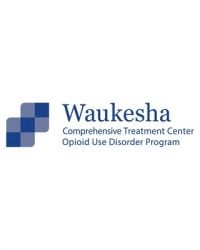
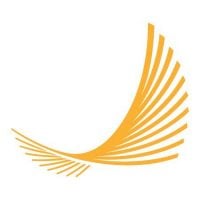
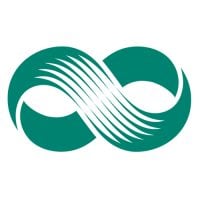

The facility name, logo and brand are the property and registered trademarks of Family Services - Alcohol and Drug Counseling, and are being used for identification and informational purposes only. Use of these names, logos and brands shall not imply endorsement. RehabNow.org is not affiliated with or sponsored by Family Services - Alcohol and Drug Counseling.

